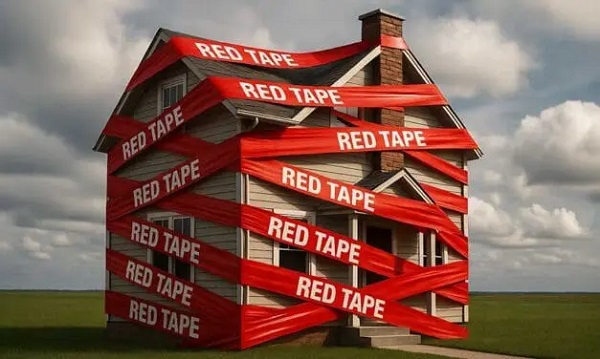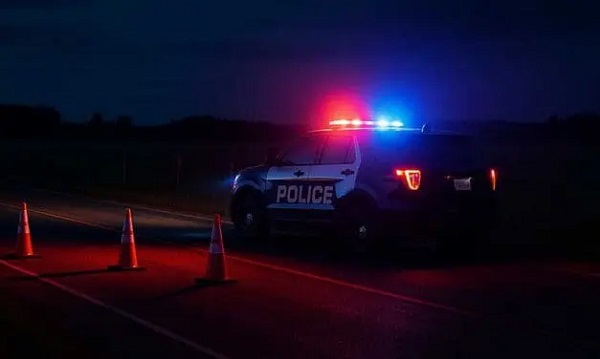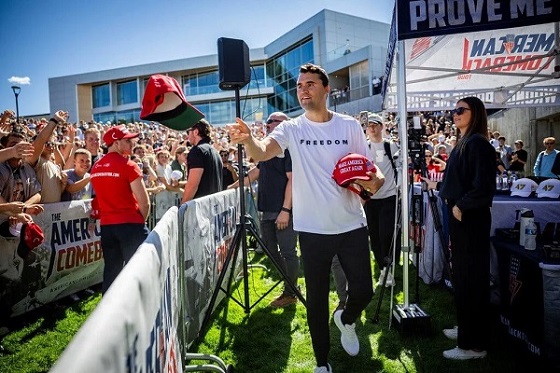Alberta
Free rapid tests, gathering rules eased slightly for Christmas season, and boosting boosters
Protecting Albertans against the Omicron variant
Alberta is taking immediate actions and clarifying health measures to protect Albertans and the health-care system against the highly transmissible Omicron variant of the COVID-19 virus.
Expanding rapid testing
Alberta’s rapid testing program is expanding to allow all Albertans to have access to free rapid tests. Test kits of five individual tests will be available at select Alberta Health Services sites and select pharmacies starting Dec. 17. More than 500,000 rapid antigen test kits will initially be available for at-home use. Rapid test kits will also be made available at more schools and for vulnerable populations.
Expanding vaccine boosters
As of Dec. 15, Albertans aged 50 and older and all health-care workers who had their second dose six months ago or longer can book a third dose of an mRNA COVID-19 vaccine to increase their protection against the virus. This will make up to 700,000 more Albertans eligible to book boosters.
Ramping up health system capacity
Alberta Health is working with Alberta Health Services on planning to restore intensive care unit surge capacity if Omicron begins to put pressure on the health-care system. Alberta Health is also reviewing policies for health-care worker exposure, infection prevention and control, and visitors to acute/continuing care sites.
Clarifying health measures
Albertans are being asked to observe public health measures over the holidays around social gatherings, masking and personal practices. Indoor social gatherings will remain limited to 10 people. This applies to Albertans aged 18 and over, with no limits on those under 18. Additionally, there will be no limits on number of households and no distinction between vaccine and unvaccinated attendees. With these modest changes, Alberta’s social gathering restrictions remain among the most stringent in Canada.
“We are closely monitoring developments around the Omicron variant and are taking immediate action to protect Albertans and slow the spread in our province. We strongly encourage Albertans to do their part to address the threat of Omicron by getting a booster dose, using rapid tests when appropriate and following Alberta’s public health guidelines.”
“More Albertans are choosing to be vaccinated and following public health measures, which is helping protect Alberta’s health system. However, as with past variants, Omicron has the potential to change the situation quickly. Immediately expanding access to booster doses and offering free rapid testing will allow Albertans to identify infections and protect against them.”
“We are expanding our successful at-home rapid testing program to help parents, students and staff feel even more confident about learning safely in the classroom. It’s another layer of protection, together with vaccines and public health measures, to keep school communities safe.”
“Vaccines remain the most effective tool we have against COVID-19. It is especially important to get the booster dose when eligible with emerging information about third doses being more effective against the Omicron variant. Vaccines give good protection against severe disease and hospitalization but their effectiveness can decrease over time, especially with this new variant. I encourage eligible Albertans to take advantage of the increased protection that third doses offer, even if they have had a previous COVID-19 infection.”
Booster eligibility expansion
Starting Dec. 15, Albertans aged 50 and older and all health-care workers can book a third dose of an mRNA COVID-19 vaccine if they received their second dose at least six months before.
Eligible individuals can book appointments for third doses online with participating pharmacies or AHS by using the Alberta vaccine booking system. Albertans can also call 811, participating pharmacies or participating physicians’ offices.
Albertans who were previously eligible for third doses continue to be able to book their appointments. For information on eligibility, visit alberta.ca/vaccine.
At-home rapid test kits
Starting Dec. 17, Albertans can pick up a free BTNX rapid test kit from 700 select pharmacies in Edmonton, Calgary and Red Deer, and 140 select Alberta Health Services sites in other communities. To find a location, visit alberta.ca/CovidRapidTests. As more tests become available from Health Canada, more locations will be added.
Kits will be available on a first-come, first-served basis. To ensure as many Albertans have access as possible, there is a limit of one box of tests within a 14-day period per person. Albertans can pick up one additional box for another person(s) who cannot pick one up themselves provided they have each individual’s health care number.
Each BTNX rapid test kit contains five rapid tests. For maximum benefit, an individual should use two tests each week, 72 hours apart. Tests are of particular benefit for those who have had a recent COVID-19 exposure. Each test kit includes an information sheet with details on how and when to use the test.
These tests are intended for at-home personal use for regular screening in asymptomatic people. Albertans who screen positive on a rapid test or who have COVID-19 symptoms should book a confirmatory PCR test through Alberta Health Services and must isolate for 10 days or until they receive a negative PCR test result.
In-home rapid tests will also be made available to foster families and kinship caregivers with school-aged children.
Albertans who are looking for tests for their workplace are encouraged to access tests through their employers’ rapid test programs. If an employer does not provide tests, Albertans must provide documentation from privately paid tests.
The rapid test kits provided for free through Alberta’s rapid testing programs cannot be used for the Restrictions Exemption Program (REP), which requires privately paid test results.
Additionally, the rapid test kits cannot be used for travel. They do not include appropriate documentation, so Albertans should not attempt to use them for domestic or international travel needs.
School rapid testing program
All K-6 schools on alert status (two or more cases in the last 14 days who were present at school while infectious) can now request rapid test kits. Participation in the program is optional for schools, parents and staff.
Eligible schools can submit a K-6 at-home rapid testing program request form. More information is available online.
To date, more than 90 schools have requested tests for students and staff and more than 35,000 students and staff have accessed rapid tests through this program.
All rapid tests are only for people without COVID-19 symptoms. If an individual has COVID-19 symptoms, they must not use a rapid test. They should stay home, isolate and book a test through Alberta Health Services with the online assessment tool or by calling 811.
Rapid testing program
Rapid tests continue to be available to any public, private or not-for-profit employer or service provider with an approved COVID-19 screening program.
Organizations can continue to apply at alberta.ca/rapidtesting or with their local chamber of commerce.
Social gathering changes
Effective immediately, indoor private social gatherings will no longer be limited to two households. The maximum number of individuals 18 years and older permitted is 10. In addition, there will be no distinction between vaccinated and unvaccinated Albertans.
The temporary state of public health emergency has lapsed. However, all other current public health restrictions remain in effect, including mandatory masking in indoor public places.
Outdoor social gathering capacity remains at 20 people, regardless of vaccination status. Physical distancing between households is required.
Alberta
Sylvan Lake high school football coach fired for criticizing gender ideology sends legal letter to school board

From LifeSiteNews
The letter on behalf of Alberta high school volunteer football coach Taylor ‘Teej’ Johannesson mentions ‘workplace harassment’ while demanding his job back.
A Sylvan Lake high school football coach who was fired for sharing his views opposing transgender ideology on social media in a video discussing his Christian faith sent a legal demand to his former school board demanding he get his job back.
H.J. Cody High School volunteer coach Taylor “Teej” Johannesson, as reported by LifeSiteNews, earlier this month was fired by his school’s principal because he spoke out against gender-confused youth who “take their hatred of Christians” to another level by committing violent acts against them.
School principal Alex Lambert fired Teej, as he is known, as a result of a TikTok video in which he speaks out against radical gender ideology and the dangers it brings.
In a recent update involving his case, local media with knowledge of Johannesson’s issues with the principal at H.J. Cody High School in Sylvan Lake, Alberta, confirmed a legal demand letter was sent to the school.
The letter reads, “From his perspective, this opposition is consistent with the Alberta government’s position and legislation prohibiting prescribing prescription hormones to minors and providing care to them that involves transition surgeries.”
In the letter, the school board’s “workplace harassment” procedure is mentioned, stating, “Any act of workplace harassment or workplace violence shall be considered unacceptable conduct whether that conduct occurs at work, on Division grounds, or at division-sponsored activities.”
The legal demand letter, which was sent to school officials last week, reads, “Given that Mr. Johannesson’s expression in the TikTok Video was not connected to his volunteer work, the principal and the division have no authority to regulate his speech and punish him by the Termination decision, which is ultra vires (“beyond the powers.)”
Johannesson has said, in speaking with local media, that his being back at work at the school as a volunteer coach has meaning: “It’s about trying to create some change within the school system.”
He noted how, for “too long,” a certain “political view, one ideology, has taken hold in the school system.”
“I’m hoping that this demand letter, and all the attention that they’ve gotten over this, causes them to make some change,” he stated.
Johannesson has contacted Alberta’s Chief of Staff for the Minister of Education about his firing and was told that there is a board meeting taking place over the demand letter.
According to Teej, Lambert used his TikTok video as an excuse to get rid of someone in the school with conservative political views and who is against her goal to place “safe space stickers” all over the school.
Teej has been in trouble before with the school administration. About three years ago, he was called in to see school officials for posting on Twitter a biological fact that “Boys have a penis. Girls have a vagina.”
Alberta’s Conservative government under Premier Danielle Smith has in place a new policy protecting female athletes from gender-confused men that has taken effect across the province.
As LifeSiteNews previously reported, the Government of Alberta is currently fighting a court order that is blocking the province’s newly passed ban on transgender surgeries and drugs for children.
Alberta also plans to ban books with sexually explicit as well as pornographic material, many of which contain LGBT and even pedophilic content, from all school libraries.
Alberta
Parents group blasts Alberta government for weakening sexually explicit school book ban

From LifeSiteNews
By
The revised rules no longer place restrictions on written descriptions of sexual content.
Some parental rights advocates have taken issue with the Conservative government of Alberta’s recent updates to a ban on sexually explicit as well as pornographic material from all school libraries, saying the new rules water down the old ones as they now allow for descriptions of extreme and graphic sexual acts in written form.
As reported by LifeSiteNews last week, Alberta Education Minister Demetrios Nicolaides of the ruling United Conservative Party (UCP) released revised rules outlining the province’s ban on sexually explicit content in school libraries.
The original ban included all forms of sexually explicit as well as pornographic material. However, after a large public school board alleged the ban applied to classic books, the government changed the rules, removing a clause for written sexual content that has some parental rights groups up in arms.
Tanya Gaw, founder of the conservative-leaning Action4Canada, noted to media that while she is happy with Premier Danielle Smith for the original book ban, she has deep concerns with the revised rules.
“We are very concerned about the decision that no longer places restrictions on written descriptions of those acts, which is problematic,” she said in an interview with The Epoch Times.
Gaw noted how kids from kindergarten to grade 12 should “never” be “exposed to graphic written details of sex acts: incest, molestation, masturbation, sexual assaults, and profane vulgar language.”
According to John Hilton-O’Brien, who serves as the executive director of Parents for Choice in Education, the new rule changes regarding written depictions “still shifts the burden onto parents to clean up what should never have been purchased in the first place.”
He did say, however, that the new “Ministerial Order finally makes catalogs public, and what we see there is troubling.”
Alberta’s revised rules state that all school library books must not contain “explicit visual depictions of a sexual act.” To make it clear, the standards in detail go over the types of images that are banned due to their explicit pornographic nature.
All Alberta schools have until October 31 to provide a list of books that will be removed under the new rules, with the ban taking effect on January 5, 2026.
As reported by LifeSiteNews in May, Smith’s UCP government went ahead with plans to ban books with sexually explicit as well as pornographic material, many of which contain LGBT and even pedophilic content, from all school libraries.
The ban was to take effect on October 1.
The UCP’s crackdown on sexual content in school libraries comes after several severely sexually explicit graphic novels were found in school libraries in Calgary and Edmonton.
The pro-LGBT books in question at multiple school locations are Gender Queer, a graphic novel by Maia Kobabe; Flamer, a graphic novel by Mike Curato; Blankets, a graphic novel by Craig Thompson; and Fun Home, a graphic novel by Alison Bechdel.
-

 Frontier Centre for Public Policy12 hours ago
Frontier Centre for Public Policy12 hours agoBloodvein Blockade Puts Public Land Rights At Risk
-

 Business1 day ago
Business1 day agoDeportations causing delays in US construction industry
-

 Health2 days ago
Health2 days agoMAiD should not be a response to depression
-

 Alberta17 hours ago
Alberta17 hours agoParents group blasts Alberta government for weakening sexually explicit school book ban
-

 Crime1 day ago
Crime1 day agoCanadian teacher showed Charlie Kirk assassination video to young students, said he deserved to die
-

 Business2 days ago
Business2 days agoRed tape is killing Canadian housing affordability
-

 Business12 hours ago
Business12 hours agoThe Truth Is Buried Under Sechelt’s Unproven Graves
-

 Crime1 day ago
Crime1 day agoOlder man arrested at Kirk shooting admits to protecting real gunman





